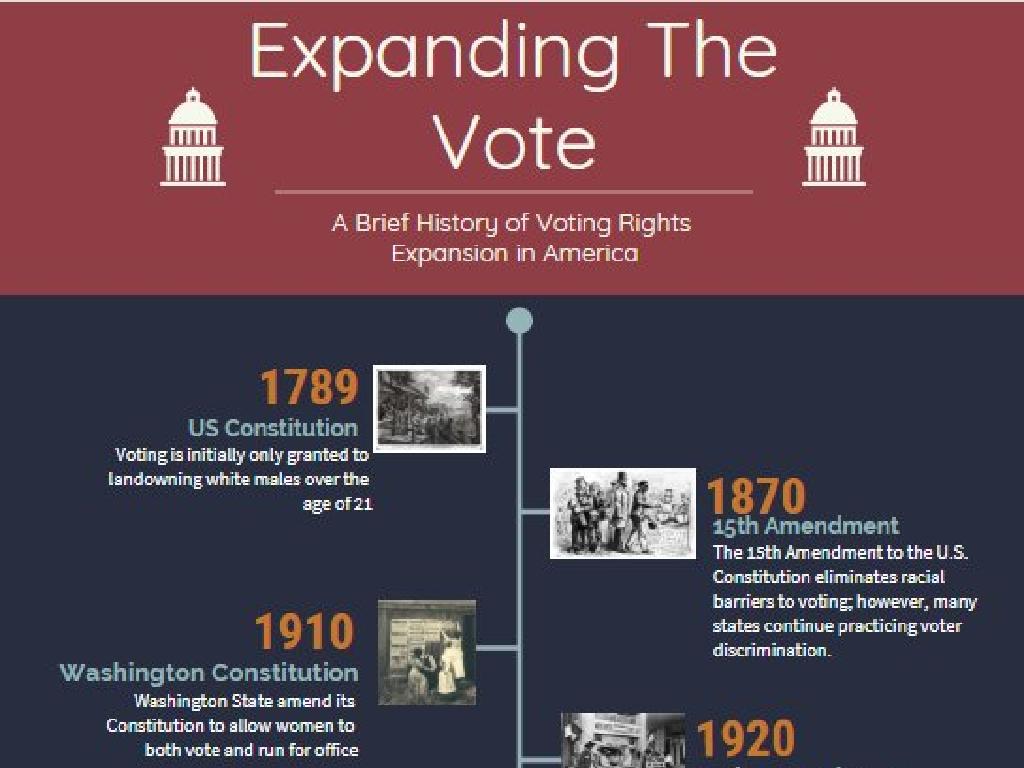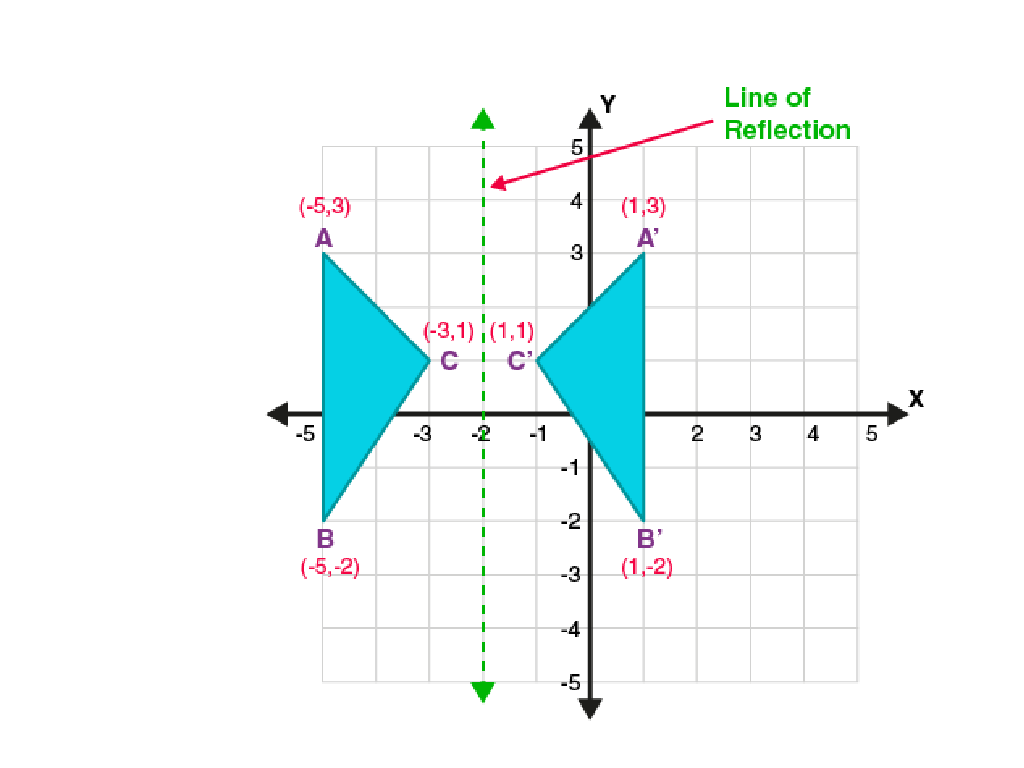Correct Errors With Indefinite Pronoun-Verb Agreement
Subject: Language arts
Grade: Eighth grade
Topic: Subject-Verb Agreement
Please LOG IN to download the presentation. Access is available to registered users only.
View More Content
Mastering Indefinite Pronoun-Verb Agreement
– Grasp subject-verb agreement basics
– Every subject matches its verb in number
– Importance of coherent sentences
– Clear communication relies on grammatical sentences
– Focus on indefinite pronouns
– Indefinite pronouns can be singular or plural
– Practice with examples
– ‘Everyone is’ vs. ‘All are’ – let’s see why
|
This slide introduces the concept of subject-verb agreement and narrows down to the specific case of indefinite pronoun-verb agreement. Start by explaining that for a sentence to be grammatically correct, the verb must agree in number with its subject. Emphasize the importance of this agreement in making sentences clear and understandable. Highlight that indefinite pronouns, such as ‘everyone’, ‘someone’, ‘anything’, can be tricky because they do not refer to a specific number of people or things. Provide examples and exercises to practice identifying whether an indefinite pronoun is singular or plural and choosing the correct form of the verb to match it. This will help students write more coherent and grammatically correct sentences.
Indefinite Pronouns and Verb Agreement
– Define indefinite pronouns
– Words that refer to non-specific items or people
– Examples: ‘someone’, ‘anything’, ‘each’
– ‘Someone left their bag’, ‘Anything is possible’, ‘Each of the players has a coach’, ‘None of the cookies were eaten’
– Contrast with definite pronouns
– Definite pronouns refer to specific things; ‘he’, ‘she’, ‘it’
– Understanding verb agreement
– Indefinite pronouns require verbs to agree in number; singular or plural
|
This slide introduces the concept of indefinite pronouns, which do not refer to a specific person, place, or thing. Examples include ‘someone’, ‘anything’, ‘each’, and ‘none’. It’s crucial to distinguish these from definite pronouns like ‘he’, ‘she’, or ‘it’, which clearly refer to specific nouns. Emphasize the importance of verb agreement with indefinite pronouns, as they can be singular or plural depending on the context. Provide additional examples and encourage students to create sentences using indefinite pronouns to ensure comprehension. Discuss common errors in verb agreement and how to correct them.
Singular vs. Plural Indefinite Pronouns
– Indefinite pronouns: singular forms
– Words like ‘anybody’, ‘each’, ‘neither’ are always singular
– Context-dependent pronouns
– ‘All’, ‘any’, ‘none’, ‘some’ can be singular or plural
– ‘All’, ‘any’, ‘none’, ‘some’ usage
– ‘All of the cookies are’, but ‘All of the water is’
– Practice with examples
– Find sentences and determine the verb agreement
|
This slide aims to clarify the concept of indefinite pronoun-verb agreement for students. Begin by explaining that some indefinite pronouns, such as ‘everyone’, ‘each’, ‘neither’, ‘anybody’, are always singular and must be followed by a singular verb. Then, discuss how pronouns like ‘all’, ‘any’, ‘none’, and ‘some’ can be singular or plural based on what they’re referring to in the sentence. Provide clear examples to illustrate this, such as ‘All of the cookies are gone’ (plural) versus ‘All of the water is gone’ (singular). Encourage students to practice by identifying whether the pronoun in sample sentences is singular or plural and choosing the correct verb form to match.
Matching Verbs to Indefinite Pronouns
– Singular pronouns need singular verbs
– ‘Everybody wants’ not ‘want’
– Plural pronouns pair with plural verbs
– ‘Many are’ not ‘is’
– Use context to determine verb form
– Clues like ‘all of’ or ‘none of’ guide us
– Practice with examples
|
This slide focuses on the rules for subject-verb agreement with indefinite pronouns. Emphasize that singular indefinite pronouns, such as ‘everyone,’ ‘someone,’ ‘nobody,’ require singular verbs. Conversely, plural indefinite pronouns like ‘many,’ ‘few,’ and ‘several’ need plural verbs. Contextual clues within a sentence can help determine the correct verb form. For example, ‘all of the cookies were eaten’ uses a plural verb because ‘all of’ implies multiple cookies. Provide students with practice sentences to apply these rules and reinforce learning. Encourage them to explain their reasoning for choosing the correct verb form to deepen their understanding.
Avoiding Indefinite Pronoun-Verb Agreement Errors
– ‘Each’ and ‘every’ take singular verbs
– ‘Each of the players has a coach’ is correct
– Correct usage with ‘each of the players’
– Practice identifying errors
– Find and fix verb agreement mistakes
– Correcting sentences activity
– We’ll correct sentences together in class
|
This slide focuses on the common mistake of using plural verbs with singular indefinite pronouns such as ‘each’ and ‘every’. Emphasize that these pronouns refer to individuals in a group, thus requiring a singular verb. Provide examples and counterexamples to illustrate correct usage. During the practice activity, encourage students to identify incorrect sentences and correct them, reinforcing their understanding of subject-verb agreement. This exercise will help students recognize and avoid these common errors in their writing. Prepare a list of sentences for the activity where students can apply what they’ve learned by identifying and correcting verb agreement errors.
Let’s Practice Together: Indefinite Pronoun-Verb Agreement
– Interactive pronoun-verb agreement examples
– Class corrects sentences collectively
– Provide immediate feedback
– Praise correct answers and explain any mistakes
– Discuss reasons for corrections
– Understanding why a verb agrees with its pronoun is crucial
|
This slide is designed for an interactive class activity focused on indefinite pronoun-verb agreement. Start by presenting sentences that contain common errors with indefinite pronouns and verbs. Encourage students to participate by identifying and correcting the errors. Provide immediate feedback on their corrections, praising correct answers and explaining any mistakes. This will help reinforce the rules of subject-verb agreement. Facilitate a discussion on why certain verbs agree with their pronouns, which will deepen students’ understanding of the concept. Possible activities: 1) Students rewrite sentences with correct pronoun-verb agreement. 2) Create a game where students earn points for correct answers. 3) Pair students up for practice and peer feedback. 4) Use sentence strips on the board for a hands-on approach. 5) Have a ‘fix the error’ contest with teams.
Group Activity: Indefinite Pronouns
– Split into groups for sentence creation
– Use indefinite pronouns correctly
– Examples: ‘Someone has left their bag’, correct to ‘Someone has left his or her bag’
– Exchange sentences for peer review
– Discuss corrections as a class
– Reflect on the importance of subject-verb agreement with indefinite pronouns
|
This group activity is designed to enhance students’ understanding of indefinite pronoun-verb agreement through collaborative learning. Students will be divided into small groups and tasked with creating sentences that include indefinite pronouns. They will then exchange their sentences with another group for correction, fostering peer-to-peer learning. After corrections are made, the class will come together to discuss the changes and reinforce the rules of subject-verb agreement with indefinite pronouns. As a teacher, facilitate the activity by providing guidance and examples, ensuring that each group participates actively, and leading the final discussion to highlight common errors and correct usage. Possible activities for different groups can include creating sentences based on specific indefinite pronouns, correcting a set of pre-written sentences, or identifying errors in a paragraph.
Homework: Mastering Indefinite Pronoun-Verb Agreement
– Complete pronoun-verb worksheet
– Identify errors in sentences
– Find sentences where the verb doesn’t match the pronoun
– Correct the identified errors
– Change the verb to match the indefinite pronoun correctly
– Share your answers in the next class
|
This homework assignment is designed to reinforce the rules of subject-verb agreement with a focus on indefinite pronouns. Students are expected to complete a worksheet that challenges them to identify and correct errors in sentences where the verb does not agree with an indefinite pronoun. Examples of indefinite pronouns include ‘everyone’, ‘someone’, ‘anything’, ‘each’, etc. It’s crucial for students to understand that these pronouns are treated as singular and therefore require singular verbs. In the next class, students will have the opportunity to share their answers and discuss the corrections they made, allowing for peer learning and teacher feedback. This exercise will help solidify their understanding of subject-verb agreement in the context of indefinite pronouns.
Sentence Auction: Mastering Pronoun-Verb Agreement
– Receive ‘sentence bucks’ for bidding
– Bid on grammatically correct sentences
– Discuss reasons for correctness
– Why is ‘Everyone is here’ correct but ‘Everyone are here’ incorrect?
– Reflect on pronoun-verb agreement
– Indefinite pronouns like ‘everyone’ take singular verbs
|
This class activity is designed to engage students in identifying correct indefinite pronoun-verb agreement through an interactive ‘Sentence Auction’. Each student will be given a set of ‘sentence bucks’ to use as currency. Sentences will be presented, and students will bid on those they believe are grammatically correct. After bidding, there will be a class discussion on why the sentence is correct or incorrect, focusing on the rules of subject-verb agreement with indefinite pronouns. This activity will help students understand that indefinite pronouns typically take singular verbs, despite sometimes referring to more than one person or thing. The teacher should prepare a list of sentences with common indefinite pronouns (e.g., everyone, someone, anything) and ensure there are examples that both follow and break the rules of agreement for students to bid on. The teacher can facilitate the discussion by asking guiding questions and providing additional examples if necessary.
Mastering Indefinite Pronoun-Verb Agreement
– Review of pronoun-verb rules
– Singular pronouns need singular verbs, while plural ones need plural verbs.
– Importance of correct agreement
– Using correct agreement avoids confusion and makes writing clear.
– Effective communication skills
– Clear writing is key to expressing ideas accurately and persuasively.
– Upcoming: Advanced subject-verb agreement
– We’ll explore more complex rules in our next lesson.
|
As we wrap up today’s lesson, it’s important to revisit the main rules of indefinite pronoun-verb agreement. Understanding whether an indefinite pronoun is singular or plural helps us choose the correct verb form, which is essential for clear and effective communication. This skill is not only crucial for academic success but also for everyday interactions and professional settings. In our next lesson, we will delve deeper into subject-verb agreement, tackling more complex sentences and exceptions to the rules. Encourage students to review today’s material and come prepared with questions for the next class.






